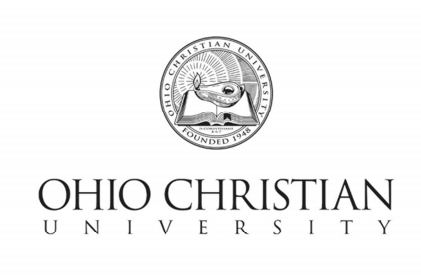Ohio Christian University – BIB3510 Gospels: Luke (ONLF23)

Devotional: Luke’s Purpose “Give Theophilus a Trustworthy and Logical Account”
Luke’s Gospel is one of the four accounts of the life, the ministry, death, and the resurrection of Jesus Christ in the New Testament. It was written by Luke, a Gentile physician and a companion of Paul, to a man named Theophilus, who was probably a Roman official or a wealthy patron (an unknown person in the narrative). Luke’s purpose was to give Theophilus a trustworthy and logical account of what he had been taught about Jesus and his followers.
Several features of Luke’s Gospel might help Theophilus have certainty about what he has been taught. Luke’s Gospel is based on careful research and investigation. Luke claims that he has followed all things closely for some time that have occurred in the past; this means that he has studied the sources and events of Jesus’ life with diligence and accuracy. He also says that he has consulted with eyewitnesses and ministers of the Word, meaning that he has interviewed and learned from the people who saw and heard Jesus personally or were involved in his ministry. Luke’s Gospel is not a mere collection of stories or legends, but a historical document grounded in facts and evidence.
Luke’s Gospel is a masterpiece of order and logic. Its narrative is carefully crafted, arranged coherently and chronologically, that guides us through the life and teachings of Jesus. Luke’s attention to detail and explanation makes the context and significance of each event crystal clear. His message is tailored to suit the needs and interests of his audience, emphasizing the universal scope and appeal of Jesus’ message. Luke reminds us that Jesus’ teachings are good news for all people, regardless of their background or circumstances. Luke’s Gospel is a testament to the power of the Holy Spirit, guiding and empowering Jesus and his followers.
Luke’s Gospel is a divine revelation inspired by God. It becomes clear throughout the text that this is not just a human product but an incredible and divine message from God. Luke uses phrases such as “the things that have been accomplished among us” and “the word” to refer to God’s actions and message throughout history. He shows us how Jesus fulfills the Old Testament scriptures and is the Son of God and the world’s Savior. The miracles and wonders Jesus performed and those experienced by his followers after his resurrection testify to the truth of his message and the power of his love.
Luke’s Gospel provides essential features to help Theophilus gain certainty in his teachings. These features demonstrate that Luke is a reliable and skilled author who has diligently researched his subject matter. Furthermore, they reveal that Luke’s Gospel is not a work of fiction or legend, but an authentic account with significant implications for faith and life. Finally, these features illustrate that Luke’s Gospel is relevant to all individuals seeking to understand God’s love and salvation through Jesus Christ, regardless of their background or beliefs.
The importance of historical reliability for the Christian faith cannot be overstated. Christianity is founded on historical events that reveal God’s plan of salvation for humanity, with the New Testament serving as the primary source of information. Among these events are life, death, and the resurrection of Jesus Christ, the central figure of Christianity. The Christian faith would face questioning and be undermined if the New Testament is not historically reliable. This discussion post is just a general overview of why Christians should believe that the New Testament is a reliable and accurate record of what God has done in history through Jesus Christ.
It matters a lot that the events of Luke’s Gospel actually took place and that they are historically reliable because they are the basis of the Christian faith and hope. If Luke’s Gospel were a fable or a myth, then it would not be a reliable or authoritative source of information about Jesus Christ, who is the central figure of Christianity. It would also mean that the claims and promises of Jesus and his followers were false or empty and that the Christian message was meaningless or deceptive.
Luke’s Gospel is not a fable or a myth but a historical account that records what God has done in history through Jesus Christ. A fictional fable teaches a moral lesson, usually involving animals or other creatures as characters. A myth is a traditional story that explains the origin or nature of something, usually involving gods or heroes as characters. Luke’s Gospel is neither of these but a biographical narrative that tells the truth about Jesus and his message.
Luke’s Gospel shows that Jesus was not a mere man or a mythical figure, but the Son of God and the world’s Savior. He was born of a virgin, lived a sinless life, performed miracles and wonders, taught with authority and wisdom, died on the cross for our sins, rose from the dead on the third day, appeared to many witnesses, ascended into heaven, and sent his Holy Spirit to his followers. He fulfilled the prophecies and promises of the Old Testament and established the new covenant between God and his people. He is the Lord and King of all creation and the only way to God and eternal life.
Luke’s Gospel also shows that the followers of Jesus were not liars or lunatics, but faithful and courageous witnesses who testified to what they had seen and heard. They were not deceived or deluded but transformed and empowered by the Holy Spirit. They were not motivated by selfish gain or worldly glory, but by love and obedience to God. They were not spreading a false or futile message, but proclaiming all people the good news of salvation. Luke’s Gospel also shows that the events of Jesus’ life and ministry were not random or irrelevant but meaningful and significant for us today. They reveal God’s character and will, love and grace, justice, and mercy, power and presence. They also reveal our condition and need, sin and guilt, brokenness, and hopelessness. They also reveal God’s solution and offer forgiveness, healing, restoration, renewal, gift, and invitation.
Therefore, it matters a lot that the events of Luke’s Gospel took place because they are the foundation of our faith and hope in Jesus Christ. If they did not occur, we would have no reason to believe in or follow him. We would have no assurance of God’s love or forgiveness. We would have no hope of eternal life or resurrection. We would have no joy or peace in this life or the next. However, because they did take place, we can trust in him and follow him. We can receive his love and forgiveness. We can have his hope and life. We can experience his joy and peace.
To apply this message found in Luke 1:1–4 (ESV) to me personally, further reading and study of Luke’s Gospel will be needed regularly and prayerfully. The best way I can apply Luke’s Gospel to myself is to read and learn from it. Luke’s Gospel is rich in details and insights that can further help me understand who Jesus is, what he did, what he taught, and what he expects from me. As I read and study Luke’s Gospel, I can ask myself: What does this passage (Luke 1:1–4, ESV) reveal about Jesus? What does this passage (Luke 1:1–4, ESV) reveal about me? How does this passage (Luke 1:1–4, ESV) challenge or encourage me? How can I obey or imitate Jesus in this passage (Luke 1:1–4, ESV)? How can I share or apply this passage (Luke 1:1–4, ESV) with others? I must also pray before, during, and after reading Luke’s Gospel, asking God to speak to me through his Word, to open my eyes and ears, to soften my heart and mind, to transform my life and character, and to empower me through the Holy Spirit. We all need to follow the examples of Jesus and His followers in Luke’s Gospel. We also need to apply these teachings of Jesus because they instruct us on how to live as Christians. The Book of Luke tells us that we can apply the teachings of Jesus by loving God with all our heart, soul, mind, and strength, and loving our neighbor as ourselves (Luke 10:27), by forgiving those who sin against us (Luke 17:3-4), by seeking first the kingdom of God (Luke 12:31), by being ready for his return (Luke 12:35-40), by denying ourselves, taking up our cross daily, and following him (Luke 9:23). We can also apply the teachings of his followers by being generous with your possessions (Acts 2:44-45), by devoting ourselves to the apostles’ teaching, fellowship, breaking of bread, and prayer (Acts 2:42), by being filled with the Holy Spirit (Acts 2:4), by witnessing to the ends of the earth (Acts 1:8).
In Luke’s Gospel, Jesus and his followers demonstrate power over various challenges in life. Trusting in Jesus and relying on his Spirit can give us all personal experiences of this power, such as forgiveness and salvation, healing and wholeness, deliverance and freedom, peace and calmness, boldness and courage, wisdom and understanding, and unity and harmony. These are some ways that I can apply Luke’s Gospel to myself personally. Of course, more aspects and applications can be discovered as we all study Luke’s Gospel more deeply. My prayer is in the hope that my relationship with Jesus Christ through Luke’s Gospel grows.
Blessings as we sojourn through life and the Book of Luke,
Lesallan



